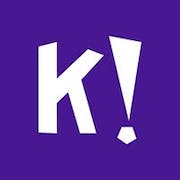Gamification is changing the way we approach business software at a fundamental level. By integrating game mechanics and design into everyday workflows, businesses can engage employees, customers, and partners like never before. The result? Increased productivity, loyalty, and bottom-line results. But with so many gamification software solutions on the market, choosing the right one for your company can be daunting. How do you know which platform will deliver the results you need? In this buyer's guide, we'll provide you with the knowledge you need to choose the best gamification software for your business. Whether you're looking to boost employee engagement, increase customer retention, or drive performance across your entire organization, our guide has you covered. So, let's get started!
What is Gamification Software
Gamification software is a set of programs that use gaming principles to motivate consumer engagement and drive behavior change in non-gaming settings. It incorporates game mechanics such as leaderboards, rewards, and points into activities that are otherwise dull and mundane, which can encourage users to engage more actively, learn, and even change their behavior. Gamification is a powerful tool that is being widely used across various industries to enhance customer engagement and improve user experiences. A few common use cases of gamification software include: 1. Personalization and loyalty programs in the retail industry 2. Health and wellness programs in the healthcare industry 3. E-learning and education platforms 4. Employee training and development 5. Recruitment and talent management 6. Financial management services 7. Social media engagement and influencer marketing 8. Travel and hospitality programs 9. Charity and non-profit initiatives 10. Events and conferences Companies across multiple industries are employing gamification to boost customer engagement, loyalty, and satisfaction. Retailers such as Nike and Fitbit are using gamification to motivate customers to stay fit and healthy, while companies like Duolingo are leveraging gamification to make language learning more engaging and enjoyable. KFC has also employed gamification in the form of "Shrimp Attack," a game designed to boost sales of their shrimp food menu items. In healthcare, companies such as YuLife are using gamified wellness programs to improve employee well-being and productivity. Employee training and development are other areas where gamification is being widely used. By adding fun and interactive features to training programs, organizations can improve employee engagement and enhance retention. In conclusion, gamification software is rapidly becoming an essential tool for companies across a diverse range of industries. By employing gamification principles to their activities and initiatives, businesses can boost customer engagement, employee productivity and satisfaction, and drive behavior change.
Benefits of Gamification Software
Gamification software has become a popular solution for businesses looking to enhance their operations, improve their employees' performance, and drive customer loyalty. This technology combines game mechanics with business practices to create an engaging experience that encourages users to reach certain goals and stay motivated. Here are some of the main benefits of using gamification software in your business: - Boosts Employee Engagement: Gamification software can motivate employees by introducing challenges, goals, and rewards that incentivize them to perform better. This leads to increased employee engagement, productivity, and job satisfaction. - Increases Customer Loyalty: By using gamification software, businesses can foster a deeper connection with their customers and build brand loyalty. Engaging experiences can help customers feel more invested in a company's success and inspire them to keep coming back. - Enhances Learning and Training: Gamification software is an effective tool for employee training and development. It can help make learning fun and interactive, increasing knowledge retention and improving overall performance. - Improves Data Collection: Gamification software can stimulate users to provide feedback and data through surveys, ratings, and other means. This data can be used to make data-driven decisions to improve the business and improve customer experience. - Promotes Health and Wellness: Gamification software can be used to encourage healthy habits and lifestyles. It can track progress, provide challenges, and rewards to promote healthy behavior. In conclusion, gamification software is an essential tool for businesses who want to promote employee engagement, increase customer loyalty, enhance learning and training, improve data collection, and promote health and wellness. By implementing this technology strategically, a business can stand out from the competition, boost profitability, and transform its processes through an engaging experience.
Features of Gamification Software
Gamification is a powerful tool that can be used to increase user engagement and motivation in technical writing. This technique involves incorporating fun and interactive elements, such as rewards, points, badges, or prizes, into content authoring, educational sites, and technical writing material. Features of gamification software typically include a range of customizable components that enable businesses to create tailored gamification experiences: from user badges, leaderboards, and points systems, to customizable avatar creation options, mission completion elements, and activity feeds. When used effectively, gamification can promote e-learning and incentivize employees. Other common features of gamification software include data analytics, interactive quizzes, and the ability to track user engagement. By incorporating gamification into technical documents, such as using visuals and games, you can make technical information more attractive and accessible to users.
Considerations of Gamification Software
Gamification refers to the use of game mechanics, such as points, badges, leaderboards, and quests, to encourage engagement, motivation, and learning. Gamification software is a tool that enables businesses to implement gamification strategies in their products, services, or internal processes. In this article, we will discuss the key factors that businesses should consider when purchasing gamification software. 1. Business Needs: Before selecting a gamification software, businesses should identify their unique requirements and goals. They should consider what type of game mechanics are suitable for their target audience, what behaviors they want to encourage, and what outcomes they expect to achieve. For instance, a sales training program may require different game mechanics than a customer loyalty program. 2. Platform Integration: Businesses should also assess how well a gamification software integrates with their existing technologies, such as learning management systems, CRMs, or HR software. Integration capabilities ensure that the gamification software can easily share data and communicate with other systems, minimizing manual work and maximizing efficiency. 3. Customization Options: While some gamification software offers pre-built templates and themes, others provide more customization options, including custom branding, languages, and game design. Businesses should evaluate whether they can tailor the gamification solution to match their brand image, user interface preferences, and cultural context. 4. Analytics and Reporting: Gamification software should provide a robust analytics and reporting dashboard that tracks user behavior, progress, and achievements. The dashboard should also allow businesses to monitor the effectiveness of their gamification strategies and identify areas for improvement. Advanced analytics features, such as predictive analytics or machine learning, can further enhance the software's capabilities. 5. Security and Privacy: As gamification software often involves collecting and processing user data, businesses should ensure that the software provider complies with relevant data protection regulations, such as GDPR, CCPA, or HIPAA. They should also evaluate the software's security measures, such as encryption, user authentication, and access controls, to prevent data breaches or unauthorized access. 6. User Experience: The success of gamification largely depends on how well the software engages and motivates the users. Therefore, businesses should test the software's user experience, including the user interface, navigation, and feedback mechanisms, to ensure that it is intuitive, easy to use, and enjoyable. In conclusion, purchasing gamification software requires careful consideration of multiple factors, including business needs, platform integration, customization options, analytics and reporting, security and privacy, and user experience. By selecting the right gamification software that aligns with their goals and meets their requirements, businesses can drive user engagement, improve performance, and achieve their desired outcomes.
Software Trends for Gamification Software
Gamification software has been on the rise for the past few years, with businesses using game elements to engage users and drive behaviors. As we head into 2023 and beyond, there are some significant gamification software trends that businesses need to consider. Firstly, we can expect an increase in the use of AI in gamification software. AI can help businesses tailor game experiences to individual users and create more personalized experiences. This can be done by analyzing user behavior and adapting the game accordingly, making the experience more engaging and stimulating. Another trend that we can expect to see is the gamification of the workplace. As businesses look for new ways to motivate employees and drive productivity, gamification offers a unique solution. By introducing game elements into work-related tasks, businesses can create a more engaging and fun environment for their employees. In addition to this, we can expect to see an increase in the use of VR and AR in gamification software. These technologies offer immersive experiences that can help businesses create more engaging games that users will enjoy. VR and AR can also be used to create training simulations, allowing employees to practice real-world scenarios in a safe and controlled environment. One of the most significant trends in gamification software is the use of blockchain technology. Blockchain can be used to create secure and transparent gaming ecosystems where users can earn rewards and tokens for completing tasks and achieving goals. This can provide a new revenue stream for businesses and offer users a more interactive and rewarding experience. Finally, we can expect to see an increase in the use of mobile gamification software. As smartphones become more prevalent, businesses can use mobile apps to engage users and provide them with more gamification opportunities. This can be done through location-based games, social media challenges, and other engaging experiences. In conclusion, gamification software is set to become even more prevalent in 2023 and beyond, with businesses using new technologies and trends to create engaging experiences for their users. By keeping up with these trends, businesses can stay ahead of the curve and ensure that their gamification experiences remain relevant and exciting for their users.







